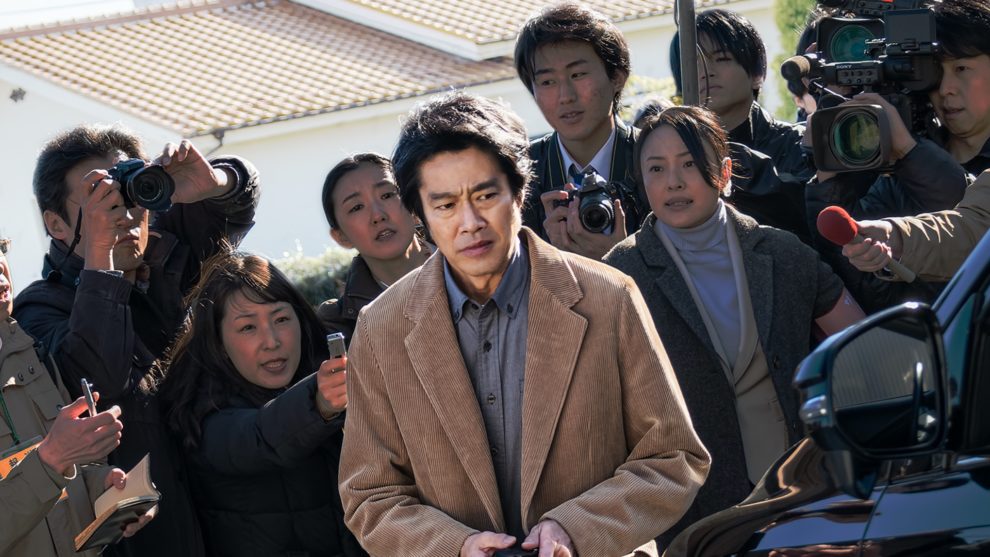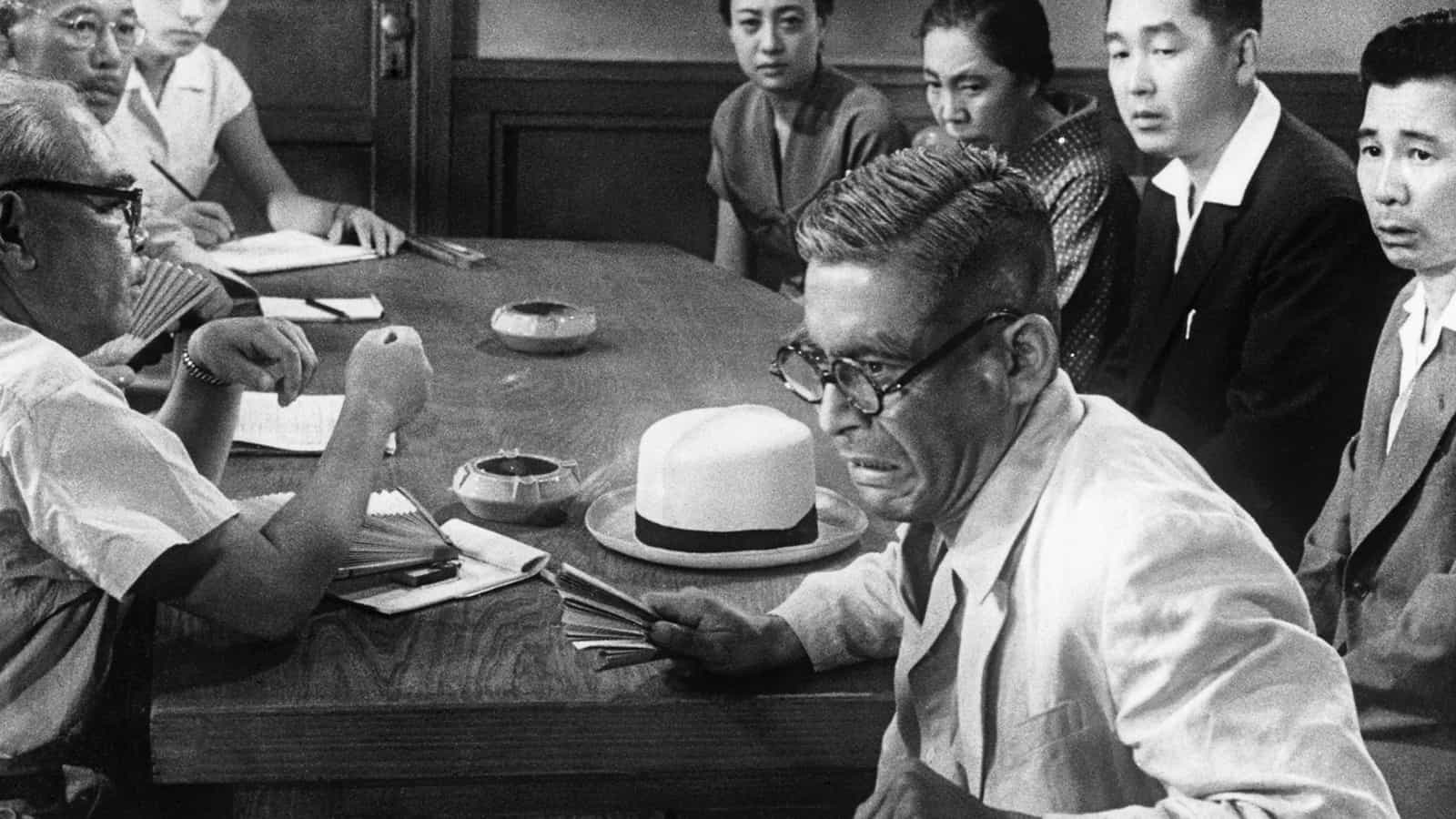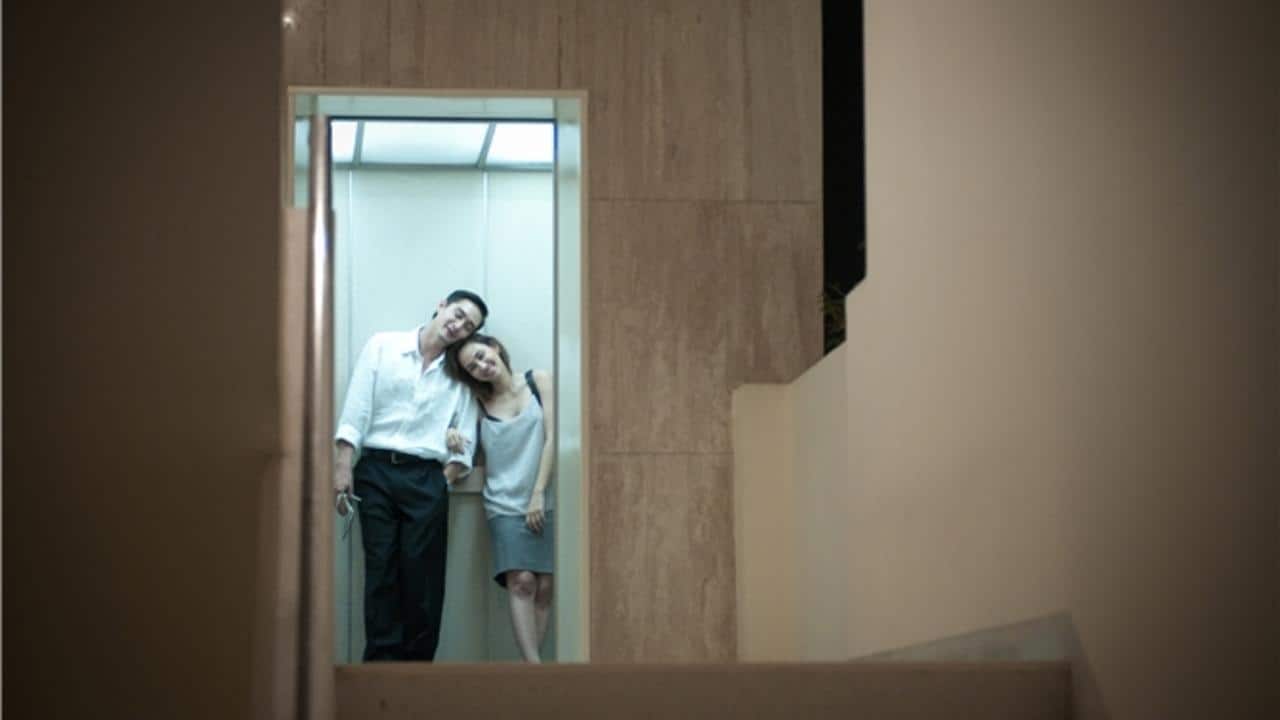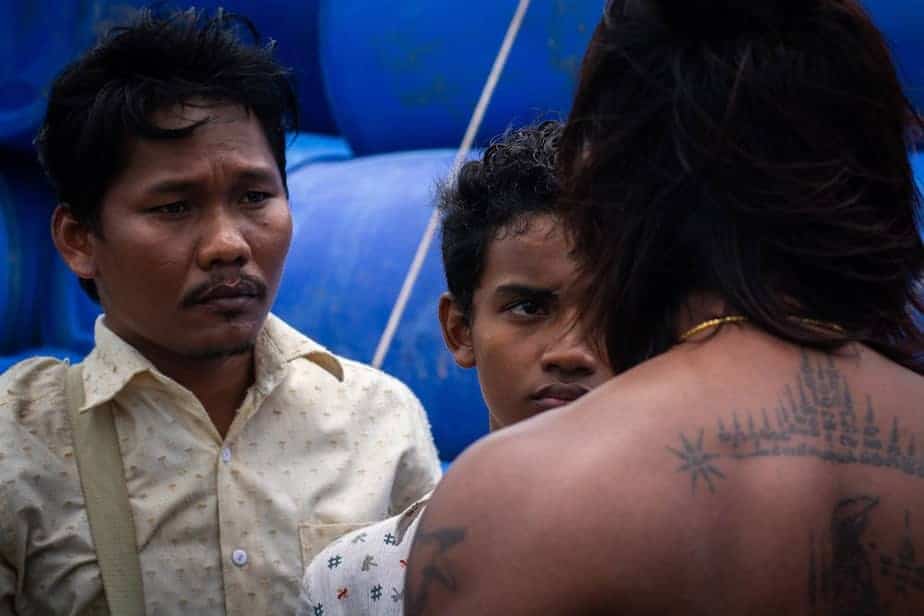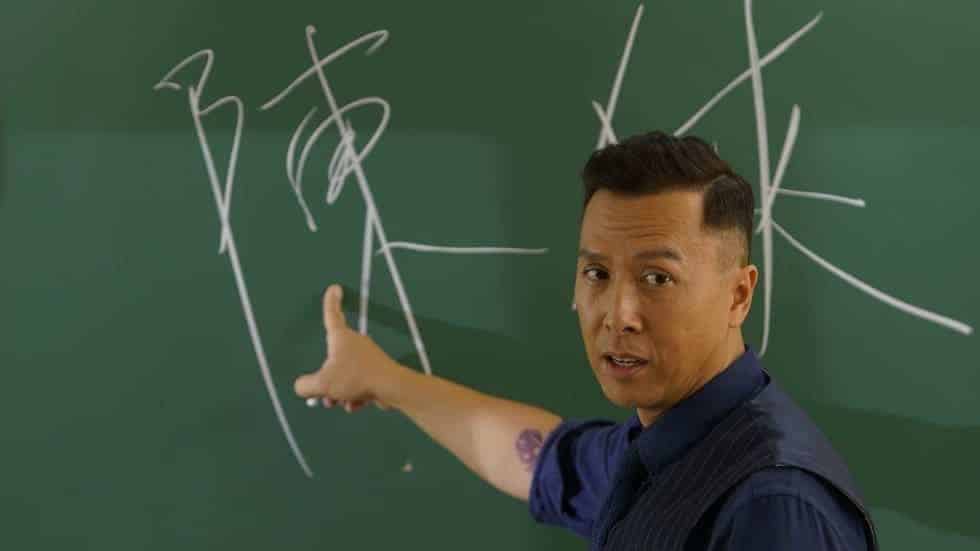The deconstruction of the family as a concept has always been a popular topic in the Japanese movie industry, where the family drama is one of the most popular categories. Yukihiko Tsutsumi tries his hand in the genre, by adding a crime element, in a movie adapted by Shusuke Shizukui's novel, “Nozomi”
“Hope” is screening at Toronto Japanese Film Festival

Kazuto Ishikawa is a successful architect. He is married to Kiyomi, who works in publishing and does her work from home, and is the father of two, Tadashi, who attends high school, and Miyabi, who attends middle school. They live together in an impressive, two-storied home, designed by Kazuto, who frequently brings potential customers to visit the premises as a sample, to the annoyance of Tadashi, who frequently finds strangers barging into his room without previous notice. Tadashi in general is experiencing a rough adolescence, and an injury that causes him to quit playing soccer, makes things even worse. One day, he appears with a bruise on his head, and his parents, although noticing and discussing between them about the fact, choose not to discuss it with him.
After a point, however, Tadashi starts staying out all night without permission, and Kazuto's efforts to enforce discipline on him do not work. One night, the young man does not return home at all, with the whole family starting to worry about him. A bit later, the news reveal the murder of one of his classmates, who happens to be the grandson of one of Kazuto's collaborators. The police suspect that Tadashi might be involved in the murder, while the press, and particularly a creepy journalist named Shigehiko, start surrounding the house and the family. As time passes and Tadashi does not appear, the pressure becomes more and more intense.
Yukihiko Tsutsumi directs a film which analyzes to the fullest, before it deconstructs and places together again, the concept of modern family, and on a second degree, the concept of crime, and particularly how society and the press deal with it. One of the main aspects here is the difference Kazuto and Kiyomi react to a potential crime by their son. The former is desperate for his son to be innocent, not wishing to believe that he could commit such a heinous act, while the latter does not care if he has actually murdered the other boy, she just wishes to protect him no matter what. This radically different approach eventually brings an intense strain to the family, which inevitable, also affects Miyabi, who does not know how to deal with the whole thing, and finds no support from her parents. That Kiyomi eventually accuses her husband that he would prefer for their son to be dead instead of guilty, highlights the whole situation quite eloquently, in one of the strongest scenes in the movie.
At the same time, the story comments intently on the prejudice that characterizes Japanese society, since, as soon as the case makes the news and the press bring the Ishikawas to the spotlight, everyone assume Tadashi's guilt, with Kazuto starting losing customers and collaborators, who do not want to deal with him anymore, even though the guilt of his son is not yet proven. The struggle of both parents to solve the case, with Kazuto researching by himself and Kiyomi making a deal with the devil, Shigehiko in this case, becomes more and more desperate due to the aforementioned attitude, as they both see their lives getting completely destroyed. At the same time, Kazuto's effort to apologize to his former colleagues is met with scorn and even violence, in another rather strong scene in the movie.
The role of the press here also comes under scrutiny, with Tsutsumi presenting them as vultures, who do not care at all about the impact of their coverage and overall tactics, with the strain that is placed upon the family intensifying mainly due to them, particularly in the way outsiders perceive the case. Shota Matsuda's acting as the despicable Shigehiko is quite memorable here, even if with a bit of hyperbole.
This atmosphere of angst and pressure becomes the main element of the narrative in the way it affects the protagonists, with Shinichi Tsutsumi as Kazuto and Yuriko Ishida as Kiyomi helping the most in that regard, in two rather impactful performances. The second element that helps significantly in that regard is the editing, with the rhythm implemented here being rather fitting for the case, through a relatively fast pace that actually intensifies the agony. At the same time, however, and once again, unfortunately, one of the major faults in the movie also derives from the editing, since it lingers long after the moment that could (and should essentially) be the ending, with the hand of Kazuto on Kiyomi's shoulder.
The second element that faults the narrative is the explanation of what happened, which is both somewhat unrealistic and misplaced in the film, with a sole sequence close to the end explaining the whole deal in a fashion that feels rushed. The same applies to the role of a number of girls of Tadashi's classroom, whose plea and insistence for his innocence are not particularly explored. Evidently, Tsutsumi did not want to focus so much on the case as on the impact of the family, which justifies this approach, to a point at least.
Daisuke Souma's cinematography on the other hand, captures the whole atmosphere with realism and artistry, while also giving the house an intense contextual hypostasis through his framing.
Despite some faults, of which the duration emerges as the most significant, “Hope” emerges as a captivating title due to the story, the acting, the social commentary and the way Tsutsumi has implemented them all in the narrative.


